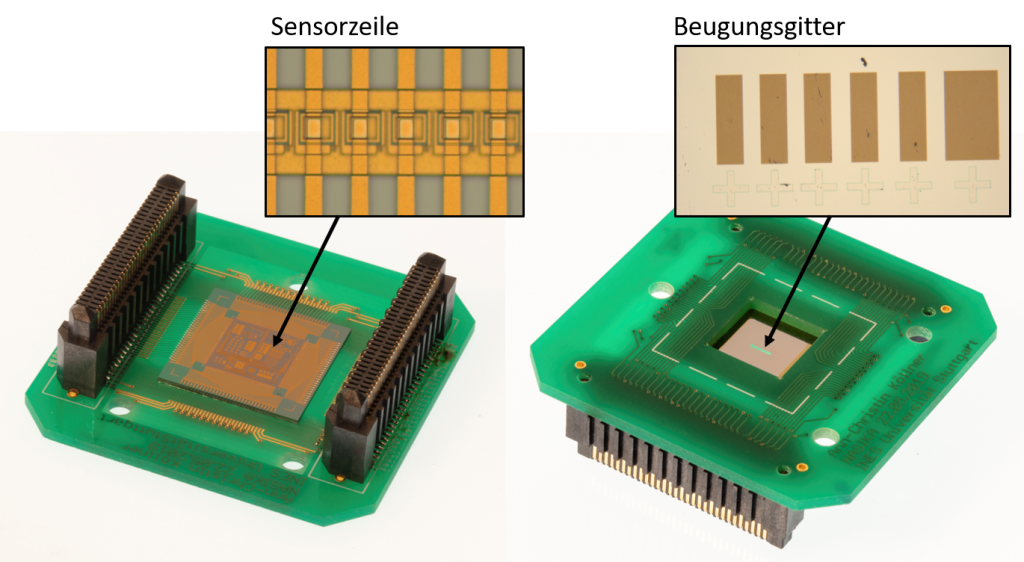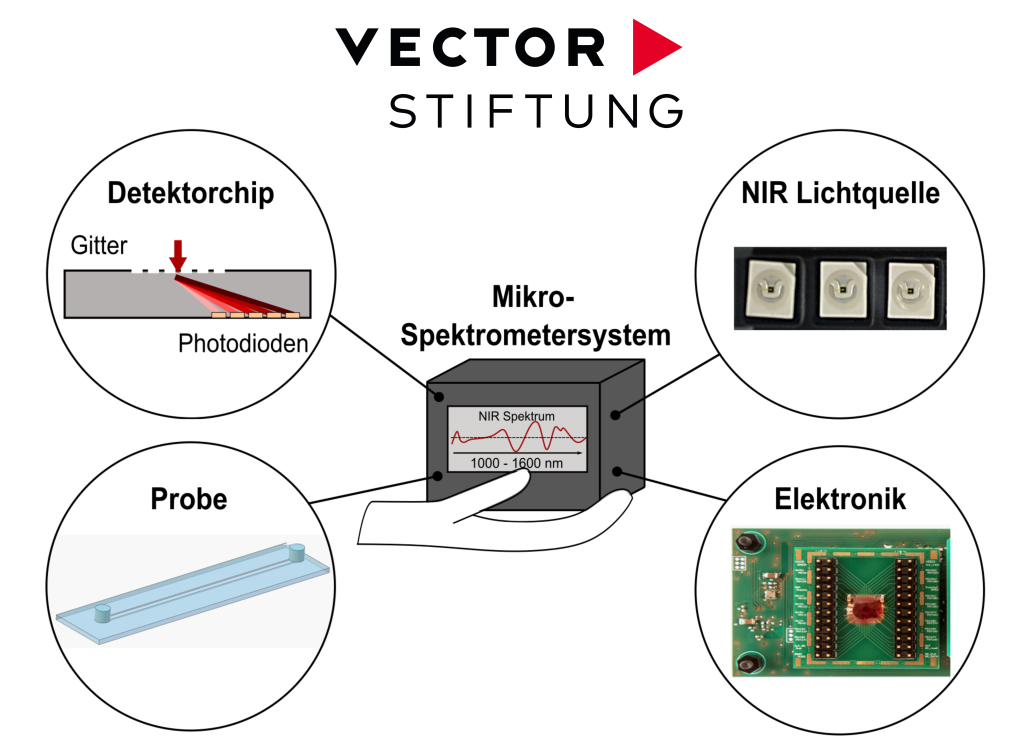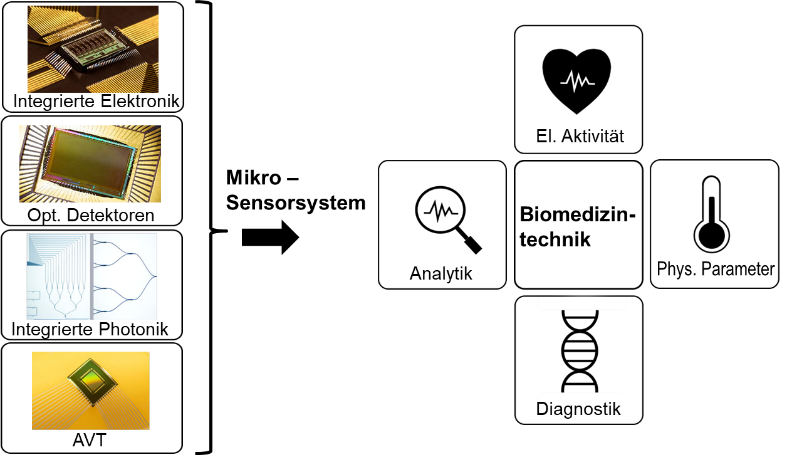IMS CHIPS develops novel approaches for biomedical technology
Veröffentlicht am

Newsletter 1/2023
Microsystems for Biomedical Technology
Innovative system solutions – from integrated circuits via sensors to data processing

The SpektroChip project
Today, many analytical procedures in biomedicine and medical technology rely on highly expensive and inflexible spectroscopy solutions. The miniaturization of such systems (lab-on-a-chip) would enable cost-effective
real-time on-site sensing in biomedical research and medical technology.
This motivates the development and demonstration of a new type of micro-spectrometer
system for the near-infrared (NIR) range aimed at in SpektroChip.
The origin of the idea behind the project was a collaboration with the Institute
of Semiconductor Technology (IHT) at the University of Stuttgart. There, a sensor chip with a germanium-on-silicon (Ge-on-Si) sensor line and a diffraction grating was developed (see figure above). In the project,
the chip, which is sensitive in the NIR range, will now be integrated into a highly miniaturized spectrometer system setup for the quantitative analysis of a biomedical sample as indicated in figure 1. The technology of NIR spectroscopy is to be used as an analytical tool. The project particularly focuses on the realization of a simple, low-cost system that stands out from the high-priced, inflexible solutions currently available on the market and allows for direct automated analysis of a sample.
In particular, current sensor applications, such as „on-site“ detection, lab-on-a-chip systems and in-line process monitoring are to be addressed.
The optical sensor chip is based on Ge-on- Si photodiodes, which are much more cost-effective than the compound semiconductor detectors (e. g., made of indium gallium arsenide) that dominate the market in the NIR range, since they are compatible with CMOS technology and thus bring much greater miniaturization and scaling potential.

General Future Topic „Biomedical Engineering at the IMS“
Looking back on various research projects it is evident that the promising field of biomedical engineering can benefit enormously from the know-how and possibilities of microelectronics and nano structuring.
In this context, microelectronics research can address various requirements of medicine: an increasing need for digitized and smart systems leads to increasing amounts of tasks that can be solved with the help of sensors. Biological activities generate very small electrical signals that need to be measured and evaluated. At the same time, the systems required for this should be as small and least invasive as possible. Both requirements can be well met with highly integrated microchips that can measure, amplify and evaluate signals within a very small space. Here, AI solutions can help to directly evaluate the enormous volumes of data from the sensors used and reduce them to a necessary level. Electronic
micro systems with intelligent sensors also enable on-site diagnoses and analyses. To meet these requirements, a high degree of interdisciplinarity is needed: in addition to the development of integrated circuits, an
in-depth understanding of suitable materials and sensors that can be used in the biological- medical environment is required. New types of approaches from a combination of optical systems and electronics enables silicon photonics, which makes it possible to equip microchips with enhanced sensory functions up to spectroscopy at chip level.

Figure 2: Microsystems for biomedical technology – From components to application-specific sensor system solutions
IMS CHIPS researches and develops solutions and new approaches for applications of electronic micro systems in the field of biomedical engineering, for example in the projects BWimplant and PanaMEA (electronics for implants to stimulate the body‘s own insulin production), TENECOR (measurement of brain waves in premature infants), POSITION2 (ASIC for MRI-proof heart catheters for ECG measurement and electroablation). In the past, sensor chips for the blind (retina implant) and for video endoscopes and a „video pill“ were also realized. In doing so, IMS CHIPS has the ambition, as indicated in Figure 2, to develop holistic innovative system solutions from individual components via ASICs and sensors, data processing and system control, with which research and product development in biomedical technology can be advanced.
Contact
Lena Schad
Phone: +49 711 21855 267
e-mail